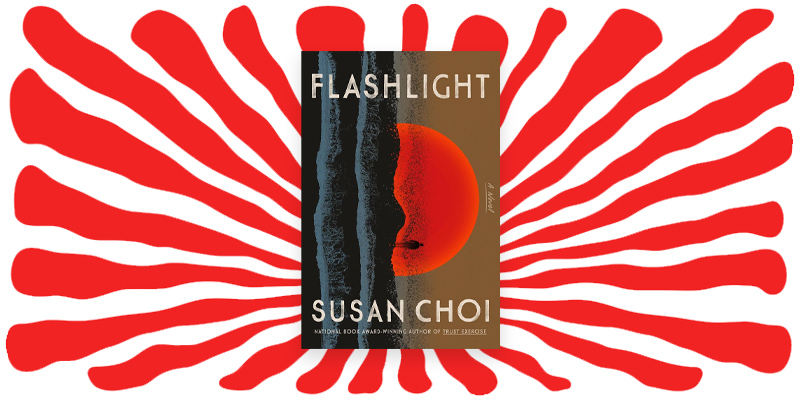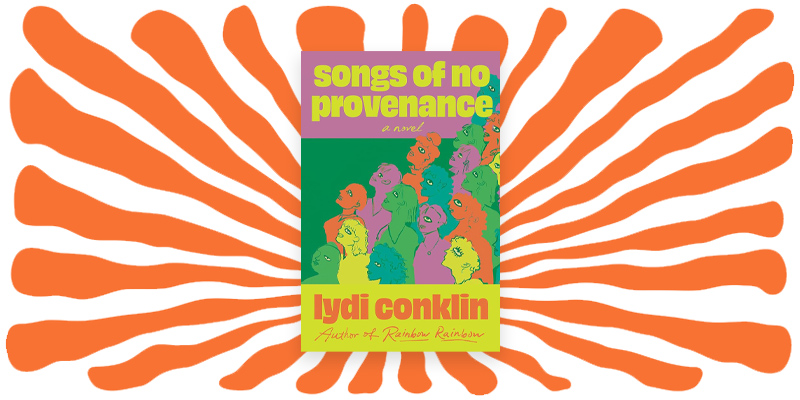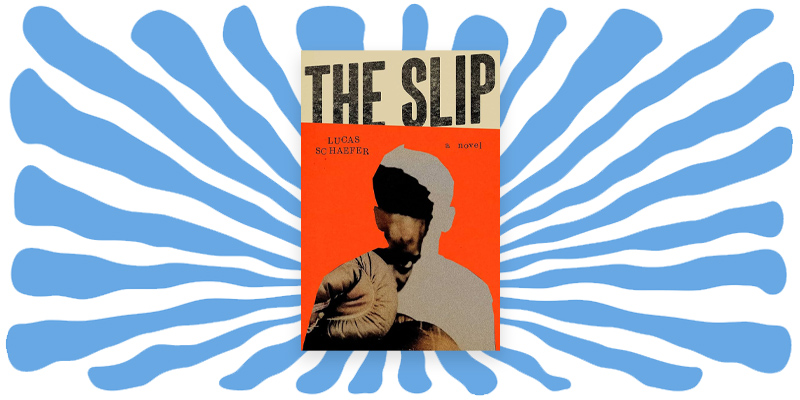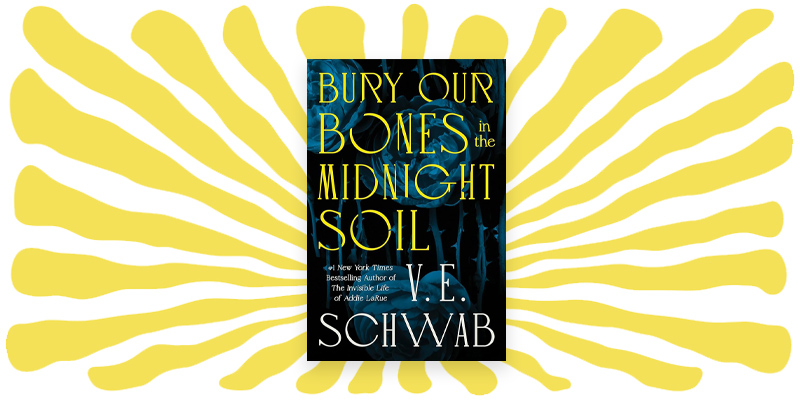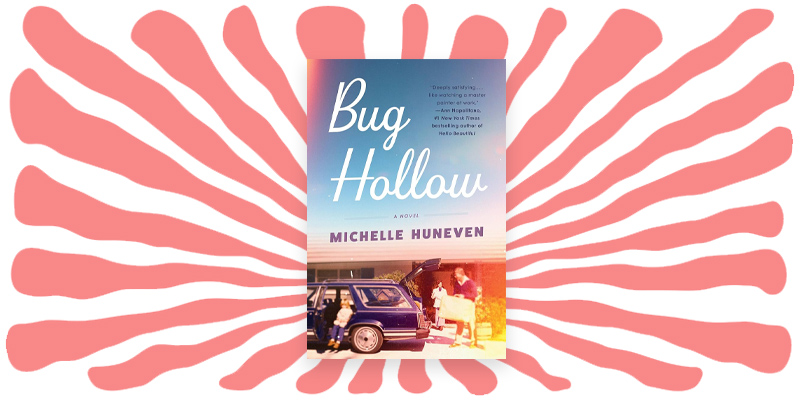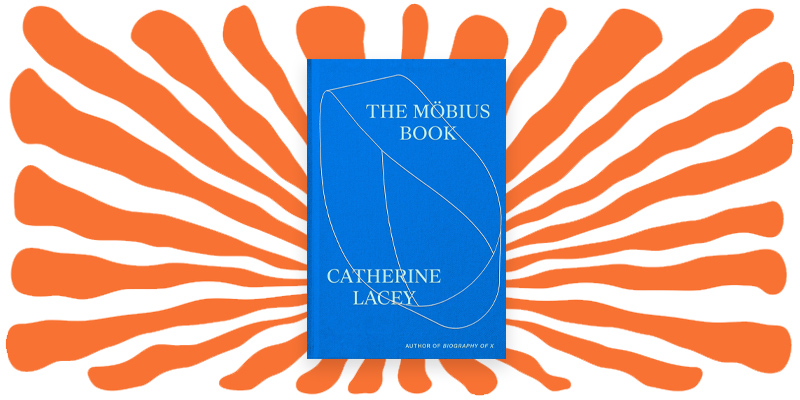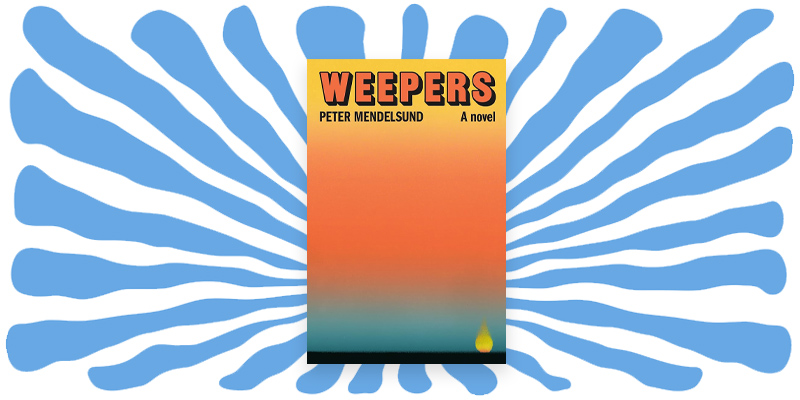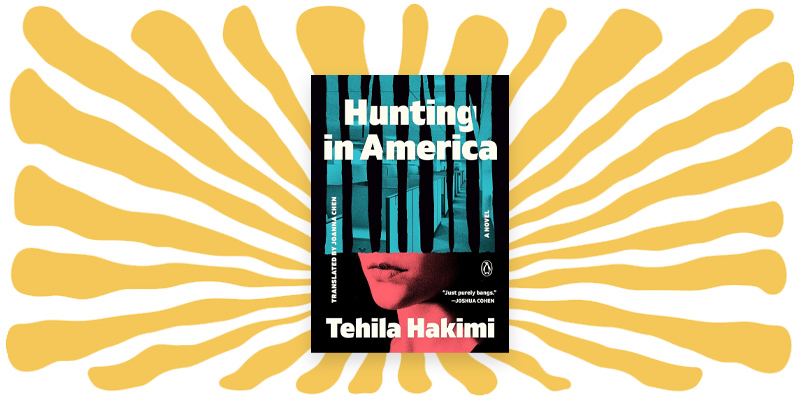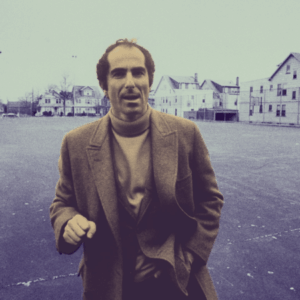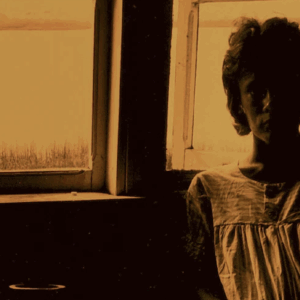
22 Novels You Need to Read This Summer
For humans, by humans
It may be the summer of slop, but that doesn’t mean there aren’t some great books out there. Here are the novels coming out this summer that the humans on the Literary Hub staff have read and loved, and would like to recommend to you.
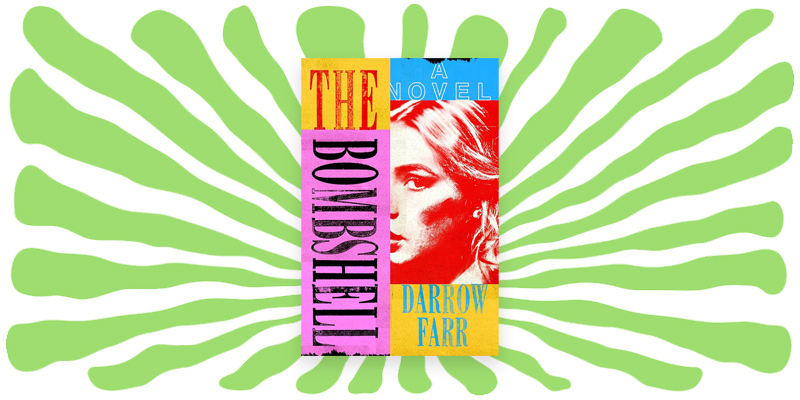
Darrow Farr, The Bombshell
Pamela Dorman, May 27
A May book that made it onto a strict June-August roundup, The Bombshell couldn’t be ignored for what it is: the truest encapsulation of the summer novel. It’s bold, brash, and deeply absorbing. I read it in two long days spent at the beach, baking in the heat, taking cold dips in the water, returning once again to the world that Darrow Farr has created. The sun, the water, the sand, all felt like extensions of the hot and crackling world evoked in these pages. Set in Corsica in the 90s, a young woman named Séverine, known for her powerful confidence and sexuality, is kidnapped from her politician father’s home. The kidnappers are Corsican nationalists who are executing their most dramatic ploy for liberation by keeping Séverine their hostage. But they’re out of their depths, these three young men, and each one ends up under Séverine’s spell, with both tender, and violent consequences. Glittering and dangerous, much like beauty, much like the promises of youth, the story of Séverine and her captors is one that will get its hooks into you. Drama and destruction, passion and power, all add up to a combustible combination in this tale of conquest, freedom, and sexual awakening. –Julia Hass, Book Marks Assistant Editor
Susan Choi, Flashlight
FSG, June 3
You might have caught a piece of National Book Award winner Susan Choi’s knotty, haunted new novel when it appeared in the New Yorker all the way back in August 2020. Spanning more than seven decades, it’s a bleak, unsentimental character study of three damaged souls trying and failing to claw back to one another. Serk is an ethnic Korean, born in Japan, whose family is ruptured by post-war regime change. Jaded and taciturn, he moves to the US, where he meets Anne, a white midwestern woman whose fling with an older man ends with the birth of a son she is immediately forced to give up. Years later, Serk brings Anne and their ten-year-old daughter Louisa to Japan for his visiting professorship, where a bizarre tragedy fractures the family beyond repair. Not an easy read, but an aching, beautiful, utterly compelling one. –Dan Sheehan, Book Marks Editor-in-Chief
Lydi Conklin, Songs of No Provenance
Catapult, June 3
I can honestly say I can’t compare Songs of No Provenance, Lydi Conklin’s debut novel, to anything else I’ve ever read. This book about an indie songwriter with a bad reputation (in the Joan Jett sense) is interested in the corrupting forces of celebrity and shame. Our thrillingly gnarly motor, Joan Vole, is monomaniacal about her work and her water sports. She lives to feel the worship of her dedicated fanbase. But when she takes her onstage antics to a new, disturbing height, reckonings follow and tabs must be paid. In Joan, Conklin’s drawn a crusty, vexing, and totally singular protagonist. I appreciated that this story begins precisely where many others with the same furniture tend to end. Conklin aims to autopsize the aftermath. What happens on the other side of the apology tour? What really follows when you finally name your kink? –Brittany Allen, Staff Writer
Lucas Schaefer, The Slip
Simon & Schuster, June 3
Most authors, let alone most debut authors, wouldn’t attempt a 500-page tragicomic Texan epic that tackles race, class, gender, sexuality, police violence, mental illness, immigration, boxing, and clowning, but Lucas Schaefer is not most authors. His first novel is the story of an endearingly malcontent teenage boy—sixteen-year-old Nathaniel Rothstein—sent to spend the summer of 1998 with his aunt and uncle in Austin, where a swaggering Haitian ex-boxer takes him under his wing. Just as Nathaniel is coming into his own at the boxing gym, he disappears. With this incident as a fulcrum, Schafer builds us a big, bold, brave, brilliant, beast of a novel. Uproarious and tender, epic in scope and intimate in portraiture, crammed with so many outlandish incidents and exquisitely rendered characters you’ll wonder how one novel can possibly contain them all, but Schaefer pulls it off with aplomb. As fearless and enjoyable a debut as you’re likely to read this year. –DS
V.E. Schwab, Bury Our Bones in the Midnight Soil
Tor Books, June 10
The Invisible Life of Addie LaRue made V.E. Schwab an international superstar but I tell you what: this book is even better. I’ve always loved the messy sexiness of Anne Rice’s Vampire Chronicles books and the idea of Schwab doing messy sexy vampires is a dream come true—Sabine, Charlotte, and Alice are as etched in my mind as Louis, Lestat, and Armand. But it’s more than just a pastiche: Schwab brings her deep well of empathy to bear on questions of immortality, love, rage, and what a person owes to a society that doesn’t care for them. It’s a novel bigger on the inside, a quality that’s another of Schwab’s many seemingly magical talents. It might be my favorite book of the year so far. –Drew Broussard, Podcasts Editor

Jess Walter, So Far Gone
Harper, June 10
This is a snack of a novel. Specifically? That snack is jerky. Walter, whose polyphonic sensibility first charmed me in Beautiful Ruins, has here made something salty, sinewy, and satisfying from fairly tough material. So Far Gone follows Rhys, a retired newspaperman turned off-the-grid Thoreau acolyte, as he falls into a madcap quest to save his estranged daughter and grandchildren from the clutches of an evangelical militia/cult. In lesser hands, the family’s unfortunately topical adversaries could be but straw bogeymen or non pareil Darth Vaders. But Walter’s interested in the fear that draws people toward cruel and senseless ideologies. Full of insightful arias, shimmeringly weird little details, and a characteristic hometown love for the Pacific Northwest, this book reminded me of Cassavetes’ hard-boiled anti-heroes, and the best kinds of caper flicks. –BA
Michelle Huneven, Bug Hollow
Penguin Press, June 17
Michelle Huneven’s latest is one of those gorgeous, sprawling family sagas I’m always desperately seeking (especially in the summer—nothing goes better with sand and sun than loving, multigenerational messiness). It’s also one of the most satisfying reading experiences I’ve had in a long time. Bug Hollow follows the Samuelson family as they live with the loss of a child and sibling across decades. Huneven is less in the tentacles of trauma than in the ways in which the Samuelson find to love one another, imperfectly, consistently. It’s a novel that is hopeful without a trace of treacly fluff. Huneven has a knack for economical characterization—she makes more than a dozen points of view equally compelling and tender, with the expert deployment of the sulfurous smell of a hot spring, a marriage being saved by Dominoes. A thoroughly beautiful book. –Jessie Gaynor, Senior Editor
Catherine Lacey, The Möbius Book
FSG, June 17
A hybrid fiction/memoir piece with no real beginning or ending, Lacey’s latest work encompasses basically everything I love in a book: complicated friendship dynamics, relationship dissections, discussions about craft and art and artists, questions of faith, queer identity, mysterious pools of blood, dyke drama, etc. The structure of the book offers readers the opportunity to interpret and reinterpret the stories almost endlessly. This doesn’t feel like a trope or a gimmick, but a highly crafted formal experiment. And the writing, of course, is beautiful. Lacey’s writing is so precise that I could feel every emotional revelation like it was happening in my own body. It’s the kind of art where I was living alongside the narrators, learning with them, experiencing the world with them. The Möbius Book is truthful without being sentimental; direct without being cruel. Lacey is one of our most honest and inventive authors and this book is more proof of that! –McKayla Coyle, Publishing Coordinator
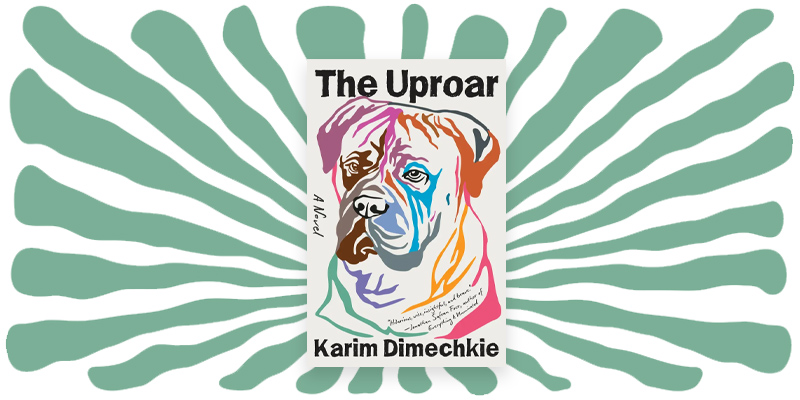
Karim Dimechkie, The Uproar
Little, Brown and Company, June 17
Karim Dimechkie’s unbearably tense (yet frequently very funny) second novel is the story of a white Brooklyn social worker—a good man, deeply invested in the idea of his own goodness—and the incident that blows his life apart. Sharif badly needs a raise. His wife Adjoua, a progressive Black novelist with overbearing parents, is pregnant with their immunocompromised child. His 150-pound Pitbull mastiff needs to be housed somewhere. When one of his former clients, an undocumented Haitian immigrant named Emmanuel, agrees to care for the dog while Adjoua is in labor, Sharif thinks he’s caught a break, until an ugly confrontation with Emmanuel’s teenage son creates a maelstrom that threatens to destroy everything. A brilliant, shapeshifting, deeply insightful examination of race and class, marriage and modern masculinity, this one will stay with me for a long time. –DS
Peter Mendelsund, Weepers
FSG, June 17
An extraordinarily unique and surreal cowboy novel, Weepers is a story unlike any other. The novel is set in a world where emotion has been seeped out of humanity: there’s too much to feel, too much to grieve, so the citizens of this universe have been nullified, neutralized, “healed”, is one word for it. In a world that has been desiccated of its resources, and of its ability to care about each other, the people in this novel don’t cry anymore. They don’t experience devastation. They go about their days, they take the many heartbreaks of life in stride.
Which is where the “weepers” come in: a hired group whose job is to feel. They attend funerals and memorials, and take on the weight of the sadness for the people who have learned to be numb. But even the weepers are growing tired of carrying this weight. Then “the Kid” shows up and joins their forces, a messianic and silent character who provokes depth wherever he goes. The weepers, as well as anyone who comes into contact with the Kid, are given a new understanding of the true sorrows and emotions that a heart can hold. Mystical and mysterious, Weepers offers its readers an entrancing story of dystopia and death, a novel just as magnetic as the Kid himself. –JH
Dwyer Murphy, The House on Buzzards Bay
Viking, June 24
If I were to tell you that there’s a novel coming out this summer that reads like a Massachusetts mashup of The Big Chill, L’Avventura, and Patricia Highsmith’s Deep Water, would you commit unspeakable crimes and/or fracture lifelong friendships in order to get your hands on a copy? Of course you would, and you’d be dead right to, because Dwyer Murphy’s slow-burning third novel is something truly special. The story of a group of old college friends on the nervy cusp of middle age whose vacation at a beach house on Cape Cod turns sinister when the most difficult of their number—an aloof and disruptive novelist with a wandering eye—disappears, and an alluring mystery woman shows up in his stead, Murphy’s third novel is both a poignant meditation on the fraying bonds of friendship, and a deeply unnerving and atmospheric psychosexual thriller. –DS
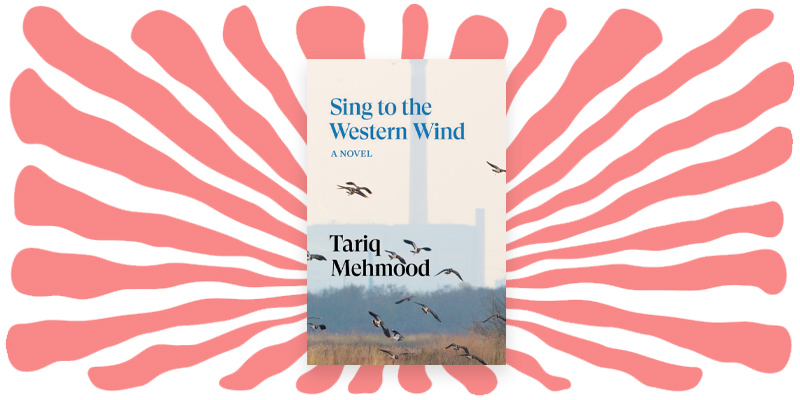
Tariq Mehmood, Sing to the Western Wind
Verso, June 24
This is a novel that defied my easy expectations. A story that traces a man’s preparation to commit a suicide bombing and the historical and interpersonal forces that push him there, was too simple to slot as a tragedy told in the aftermath of the War on Terror. But Sing to the Western Wind caught me off guard, and Mehmood offers us no unflawed victims or perfect actors.
Saleem is an older man as he plans his bombing, and the novel splices in the story of his incendiary life, set against tumultuous decades of anti-immigrant racism, the Partition of India and Pakistan, the Cold War, and the violence and realignment after 9/11. It’s a harrowing story, and the book is full of gripping tension, most memorably a near-death experience in Afghanistan when Saleem fights alongside the Mujahadeen against the Soviets. But more than the action, what stood out to me were the characters: Mehmood writes about people with a tenderness and patience that is the mark of all talented novelists. Saleem’s is a life worth thinking about, more than flotsam tossed by history. –James Folta, Staff Writer

Claire Jia, Wanting
Tin House, July 1
I love a novel with a secret, and Claire Jia’s debut is bursting with them. Wanting follows Ye Lian and Luo Wenyu, high school best friends who drifted apart due to distance and minor YouTube celebrity, as they reunite in Beijing, now in their thirties and grappling with the calcification of their life choices. A gripping exploration of friendship, envy, desire, wealth, ambition, and contemporary Beijing, Wanting is both juicy and substantial. –JG
Nell Stevens, The Original
W.W. Norton, July 1
I’ve been proselytizing Nell Stevens’ first book, Briefly, A Delicious Life since it came out a few years ago. It’s one of my all-time favorites, the kind of book that’s always in the back of my mind, that I come back to all the time. So I was beyond excited to find out there’s a new Nell Stevens book coming out this summer! And it’s a total banger! I literally couldn’t put this book down. I thought about it constantly while I was reading it. If that’s not a recommendation, I don’t know what is.
The novel follows a young woman, Grace, who secretly becomes an incredible art forger. Just as she begins to use her talent professionally, a man shows up claiming to be her long-lost cousin—but Grace’s face-blindness makes it impossible for her to know whether he’s really her cousin or not. It’s a novel about fakes and copies and originality and the meaning of art and it has so many delicious layers to unwrap. It’s like F for Fake (1973) by way of Jane Eyre or O Caledonia. It’s thoughtful and haunting and beautifully written. A perfect gothic novel to add to your summer reading list! –MC
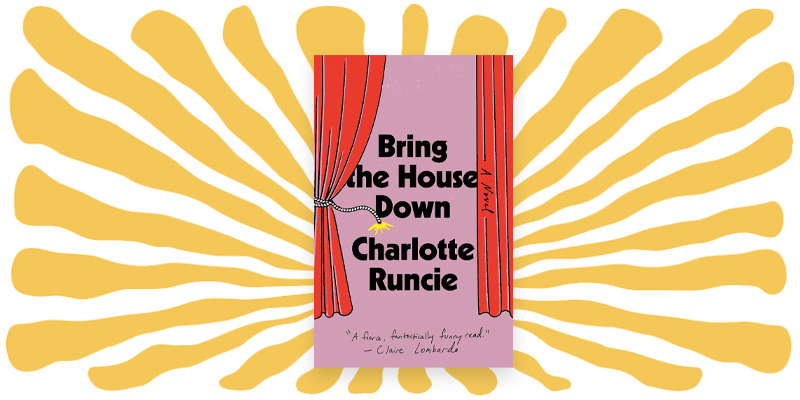
Charlotte Runcie, Bring the House Down
Doubleday, July 8
I’m still a theater kid at heart (no matter how much time continues to pass without auditioning) and there’s nothing like a summer festival—and of all the summer festivals, the Edinburgh Fringe is probably the wildest and most magical. Runcie (a journalist who covered the Fringe for years) gets theater right in this excellent debut novel. It follows a female critic who watches her male colleague suddenly become the focus of an excoriating one-woman-show after he gave it a bad review. It’s a brilliant look at the utter madness that is the Fringe, a deep consideration of criticism and art (and parenthood as a professional), and a fiery reminder that we still have so far to go when it comes to men behaving poorly and getting away with it. Like the title says, it’s time to bring the house down. –DB
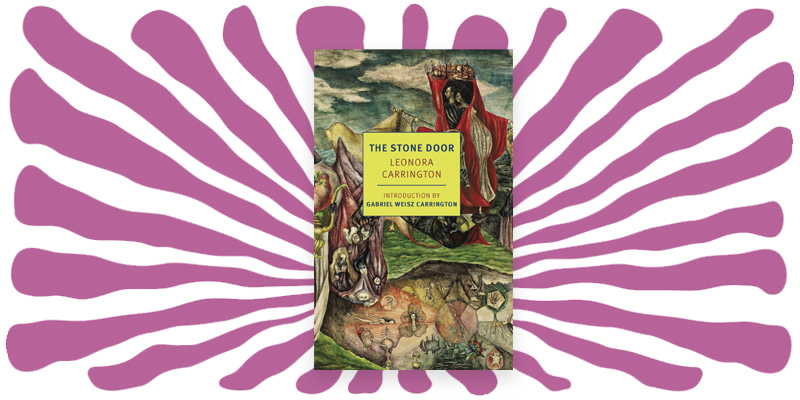
Leonora Carrington, The Stone Door
NYRB, July 15
The Stone Door opens in a forest, on a house composed of competing styles, “as if the architect had wrought a terrible revenge on his school days.” It’s a fitting opening image for a book that is also a pastiche of styles, strange and tough to characterize with the epic sweep of myth, the significance of parable, and the magical logic of a fairy tale. As a child, Carrington was raised on fairy tales in an English manor house and as an adult was caught, tragically at times, in the upheaval of WWII Europe and in the constant company of Surrealists. All of these influences swirl in the book, and for such a short novel, The Stone Door morphs a lot. It’s impossible to anticipate where Carrington will go: the adventure can be grounded, as in the smaller, domestic scenes, or more grand, like when the main character must negotiate with a giant who wants to skin him. The Stone Door is a fascinating and unsettled book, that always seems to be teetering on the edge of something dark, something mad: “Hardly daring to touch what I want to say, yet knowing that if I had enough space around me it would be a piercing shriek.” –JF
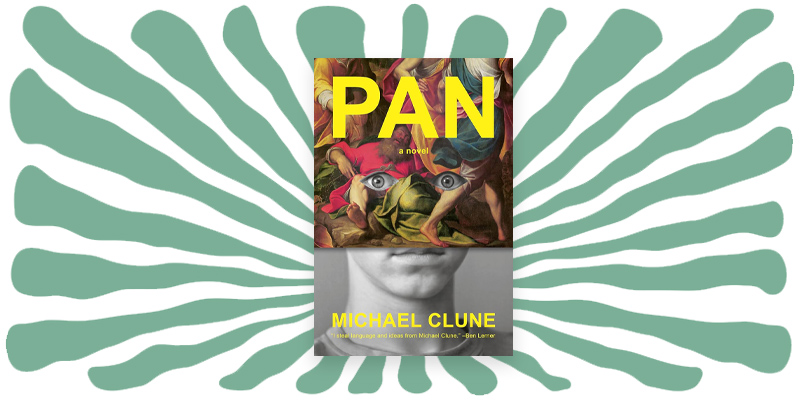
Michael Clune, Pan
Penguin Press, July 22
Though he works in many modes, Clune is best known for his 2013 cult memoir about heroin addiction, White Out, which was recently reissued by McNally Editions. In his first novel, he investigates panic, which when it manifests in the life of a teenage boy, takes on psychedelic, and then cosmic, and then, perhaps, divine proportions. The book explodes the central dilemma of the panic attack—what is real? and then, whether real or illusory, on what plane can I approach?—and wraps it all up in a moving coming-of-age story. –Emily Temple, Managing Editor
Tehila Hakimi, tr. Joanna Chen, Hunting in America
Viking, July 22
Tehila Hakimi’s award-winning Hunting in America is available in English for the first time: an enigmatic puzzle of a novel with a wry, mesmerizing voice, it goes down easy in a one-sitting read. Not to say that it’s gentle, or comfortable. It’s sly, and eerie, and keeps you guessing, and on edge, but in a way where you can’t stop turning the pages. It centers around a woman who relocates from Israel to America for her corporate job, and while reckoning with her new country, her new office, her new mundanities, develops a fixation on hunting. Stalking prey, feeling stalked herself, feeling the weight of a country and its expectations, it evokes Samantha Schweblin and Han Kang in its surreality and daring specificity. Pervasively unsettling, both too alien and too familiar, Hunting in America coolly illustrates the complicity that both Israeli and Americans have in a gun-touting culture, and the insidious ways that violence can seep into our consciousness. –JH
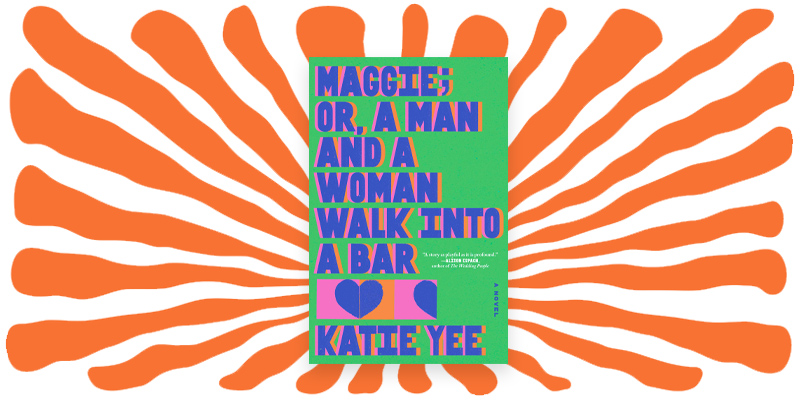
Katie Yee, Maggie; or, A Man and a Woman Walk Into a Bar
Summit Books, July 22
I can’t say I went into Katie Yee’s debut novel as an unbiased reader. I had the pleasure of reading Katie’s work for years when she was an editor at this very website. Still, personal relationships aside, I feel confident in recommending Maggie; Or, A Man and a Woman Walk Into a Bar to anyone who craves the embrace of a novel that perfectly weaves grief with warmth and wit. We follow the novel’s narrator as she absorbs the one-two punch of her husband’s affair (for which he apologizes, but does not ask for forgiveness—so, divorce) and a breast cancer diagnosis, while she meditates on the quotidian joys and betrayals of relationships, the strangeness of parenthood, the loss of health and of identity, how to nail storytime, and what a joke even is. Funny, sad, kind, and deeply tender, this is a book that goes down like a treat, and stays with you the way only the wisest novels can. –JG

Jessica Gross, Open Wide
Abrams, August 5
For a while, I thought that the promised derangement in Open Wide was going to be the regular kind: a woman who becomes much too obsessed with the man she’s dating, to the point where she ruins everything. (Is that what happens? It’s debatable.) But without giving anything away, because I am glad that I was not prepared for what actually happens: the promised derangement is much more deranged than that. It’s funny and demented and a little stupid, which I mean as a compliment, and when it starts, it doesn’t stop. Gross is excellent at pushing things to their logical conclusion, and then pushing them a little further than that, which is honestly all I want in my literature. –ET

Emily Adrian, Seduction Theory
Little, Brown, August 12
At last, a book that is actually just as fun as it sounds. This a novel in the form of an MFA thesis, written to expose a revolving door of love affairs of the professors who are reading it, not to mention the graduate student who wrote it. I know. I know! A little bit postmodern, a little bit sexy, and quite funny indeed, you will feel both smarter and more indulgent than usual while you’re reading it (especially if you’ve ever been in any kind of writing program, or had any kind of insane crush), and really, isn’t that the best way to feel, in the summer or otherwise? –ET
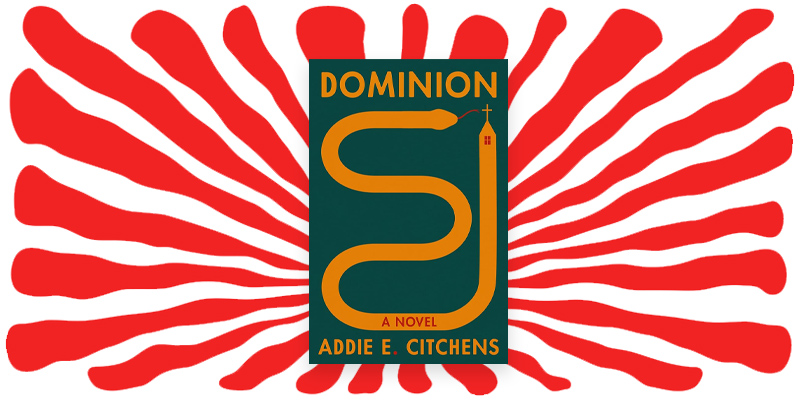
Addie Citchens, Dominion
FSG, August 19
I’ve been waiting for this novel ever since stumbling upon this perfect New Yorker story last winter. And Dominion did not disappoint. This stellar, utterly assured debut about the larger-than-life father and son about whom all congregants of the Seven Seals M.B. Church orbit simply crackles on the sentence level. We’re held in the minds of Priscilla, “First Lady” to the Reverend Sabre Winfrey, and Diamond Bailey, adoring girlfriend of the preacher’s golden son. These left of center women are charming, witty, sometimes heartbreaking chroniclers of the men who govern their lives. But the novel is as much a drama as it is a character study. Citchens is interested in the cult of patriarchy, and the many sins thoughtless worship enables.
Kiese Laymon has praised Citchens for capturing a “breathing” Mississippi with gumption. I’m another happy convert on the strength of this bright new voice. –BA
Emily Temple
Emily Temple is the managing editor at Lit Hub. Her first novel, The Lightness, was published by William Morrow/HarperCollins in June 2020. You can buy it here.









